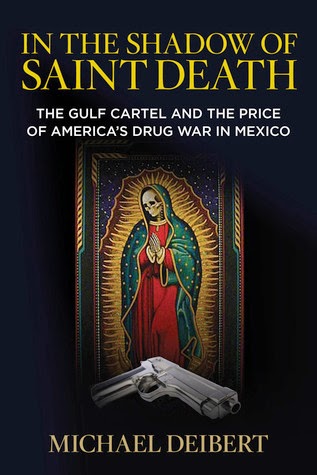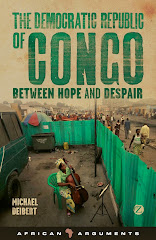01/18/2013
A journalist ventures back to a troubled, seductive Haiti
By Michael Deibert
The Huffington Post
(Read the original article
here)
In 1996, freshly graduated from university, I went into a local
bookstore in Pennsylvania and picked up a volume that ultimately changed
my life.
The book was
The Rainy Season: Haiti Since Duvalier by journalist
Amy Wilentz.
Published seven years earlier, it was a chronicle of the fall and
aftermath of 29 year Duvalier family dictatorship in that tumultuous
Caribbean nation. The writing was crisp and insightful, the political
and social drama it depicted Shakespearean, the long struggle it
described of a nation trying to form a responsive democracy in the face
of local tyrants and international meddling was Sisyphean. Within a year
I was in Haiti, a relationship that continues to this day.
Now, 23 years after
The Rainy Season, Wilentz, a professor at the University of California at Irvine, returns to the Magic Island with her new volume,
Farewell, Fred Voodoo: A Letter from Haiti.
Much has transpired since
The Rainy Season, not least of all the apocalyptic January 2010
earthquake
that leveled much of the capital and surrounding towns, killing tens of
thousands of people. Haiti's two-time president Jean-Bertrand Aristide,
a figure who, as much as anything, Wilentz's first book helped solidify
in the international imagination, was overthrown not once but twice, in
1991 and in 2004, in circumstances that couldn't have been more
different. A United Nations peacekeeping mission, largely unloved and convincingly linked to a strain of
cholera that has killed over 7,000 people, has been on the ground for nearly a decade.
Unlike many commentators on Haiti, Wilentz genuinely likes and is
stimulated by the Haitians themselves, and, in between despairing
observations, in both
The Rainy Season and
Farewell, Fred Voodoo,
she manages to capture the beauty of Haiti, physical and spiritual,
something that foreigners writing about the place rarely do.
But despairing and pessimistic would indeed seem to be the most apt
adjectives for the book's take on Haiti's post-earthquake landscape.
After Wilentz adroitly points out that what was often commented upon
as Haitian "resilience" after the earthquake was in fact more likely
post-traumatic shock, she goes on to conclude that "misery in Haiti
today is a job creator for the white man" and that "the aid
superstructure in Haiti...has created exactly the circumstances in which
it becomes indispensable." Acidly and perceptively, she compares the
thousands of aid workers, journalists and others who descended on Haiti
after the quake as the equivalent of
loup garous, the parasitic werewolves of Haitian folk legend.
She wonders why, if in the earthquake's aftermath the international
community was able respond so quickly to so many chronic needs in Haiti
as access to clean water, these problems could not be addressed before.
As she did in
The Rainy Season, Wilentz also pays tribute to
the political significance of vodou, Haiti's syncretic religion that is
too often ignored or caricatured.
Some of the book's anecdotes - from a hapless Haitian-American couple
trying to buy land to a relentlessly self-promoting American journalist
to a rather overdone portrait of an American doctor - run a bit long,
but Wilentz can be darkly humorous in the margins. One American
adventurer is described as having "liked to drink a quart of whiskey a
day and to chain women up...[His] marriages did not last long." When
Wilentz delves into the details of the 2010 privatization of Haiti's
state telephone company, Teleco, and the state's torturous relations
with the communications giant Digicel and its Irish chairman Denis
O'Brien, the book is revelatory.
The book's major shortcoming is an unwillingness to address directly
the tangled legacy of Aristide, a man whom Wilentz, as much as any
writer, helped to bring to international prominence.
Though in one passage she tellingly recalls Aristide truculently
complaining that hundreds of checks sent from abroad to fund his
"projects" were not large enough - "not worth cashing," in fact -
Wilentz's rather forgiving view gives rather short shrift to voluminous
evidence that complicates any benign picture of the former president.
When Wilentz writes about Aristide's paternal relationship with
street boys when he was a priest, she omits the far darker turn that
relationship eventually took, with Aristide's political party and
government helping to organize youth
gangs as a
bludgeon
to use against his political opponents. Those looking for an
examination of why virtually the entire top command of Aristide's police
force and the upper management of Teleco during his tenure subsequently
ended up in prison for
drug trafficking and
corruption offenses will look in vain, as will those looking for an accounting of the government's often horrific collective
punishment against its rivals.
Wilentz herself treads very close to an apt, though inexact, parable
for Aristide's rise and fall, when she accurately concludes that,
culturally and politically, Haiti most closely resembles "French West
Africa."
Like Aristide, Côte d'Ivoire's former president Laurent Gbagbo was
once viewed as a champion of democracy as he led opposition to the long
dictatorship of Félix Houphouët-Boigny. And like Aristide, once in power
Gbagbo began to mimic in every particular the very worst and most
anti-democratic tendencies of those he once railed against. After
serving as president from 2001 until 2011, Gbagbo was extradited to the
International Criminal Court in the Hague to be
tried for crimes against humanity. Aristide returned to Haiti from exile in 2011. He is currently being sued by
account holders ruined in a government-endorsed cooperative
scheme during his administration and some of those same street
children he once allegedly championed.
Writing in a marriage of memoir and critique, Wilentz's true strength
is in honestly documenting the Haiti that foreigners who visit there
construct for themselves, concluding that, despite its image of misery,
for the misfits, idealists, adventurers and opportunists that wash up on
its shores, Haiti is "a welcoming, accepting place where you can be
yourself."
A hard sell, perhaps, to those who know only the Haiti of violence
and calamity, but a sentiment that rings very - almost painfully - true
to those who have seen and been moved by one of the nation's many other
faces.
Farewell, Fred Voodoo shows us a few of them and hopefully will provoke readers to look still further.
Michael Deibert is the author of Notes from the Last Testament: The
Struggle for Haiti (Seven Stories Press) and the forthcoming Democratic
Republic of Congo: Between Hope and Despair (Zed Books).



